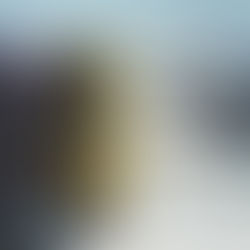Offer your customers free recycling
Nigel Harvey, CEO of Lighting compliance scheme Recolight, explains how electrical contractors can get recycling of waste lamps and fittings free of charge
Sponsored editorial

The UK is seeing a rapid transition from fluorescent lighting to LED with major roll-outs of LED integrated light fittings. This is great news for energy and cost saving. But it is important to remember that the UK WEEE regulations mean that companies can insist that the supplier of new fittings recycles the waste lamps and luminaires for free.
Recycling can be costly. Missing the trick of getting your supplier to pay for the recycling, could leave contractors out of pocket. And all too often, that is exactly what happens, with the contractor footing the bill for recycling costs.
When traditional light fittings are exchanged for new LED units, that will usually produce significant volumes of waste fluorescent lamps and luminaires, and waste batteries where emergency lighting is replaced.
By law, all producers of new fittings are required to be members of a WEEE compliance scheme. The WEEE compliance scheme is responsible for managing its producer members’ recycling obligations under the regulations. Therefore, the fittings producer can easily request this of their WEEE scheme.
The WEEE compliance scheme is the right organisation to collect and recycle waste electricals. They do this day in, day out, and reputable ones have a country-wide network of logistics and recycling contractors. They can also provide certificates of recycling or destruction on request. These can be used to show your customer that their waste has been disposed of and recycled responsibly. Some WEEE schemes may specify a minimum quantity to qualify for free collection and recycling. In the case of Recolight, this is 1000 waste lamps.
In addition to the cost savings that should be obtained through access to free recycling, there are other good reasons for contractors getting waste electricals handled in this way:
Promoting that you take care of the displaced lighting can also give you a competitive advantage for winning contracts.
The hassle of arranging collection of waste is gone. Lamp recycling is costly, and soto get this funded by the supplier’s WEEE scheme is an excellent outcome.
It usually results in better environmental outcomes. If treating the waste fittings is left to the local scrap dealer, there is a risk that they may not be treated correctly.
Conversely, a WEEE scheme is required to apply best available treatment methods to any WEEE they collect.
It should also result in reduced costs and hassle for your Customer. No need for them to deal with additional waste streams.
For the luminaire producer involved, the process should also be free of charge, where the producer is a member of a scheme such as Recolight. And in any case,
WEEE schemes can be expected to benefit from economies of scale, so their own costs should be much lower.
This approach also ensures that the recycling is correctly recorded in the Governments WEEE recycling figures, published each year.





















